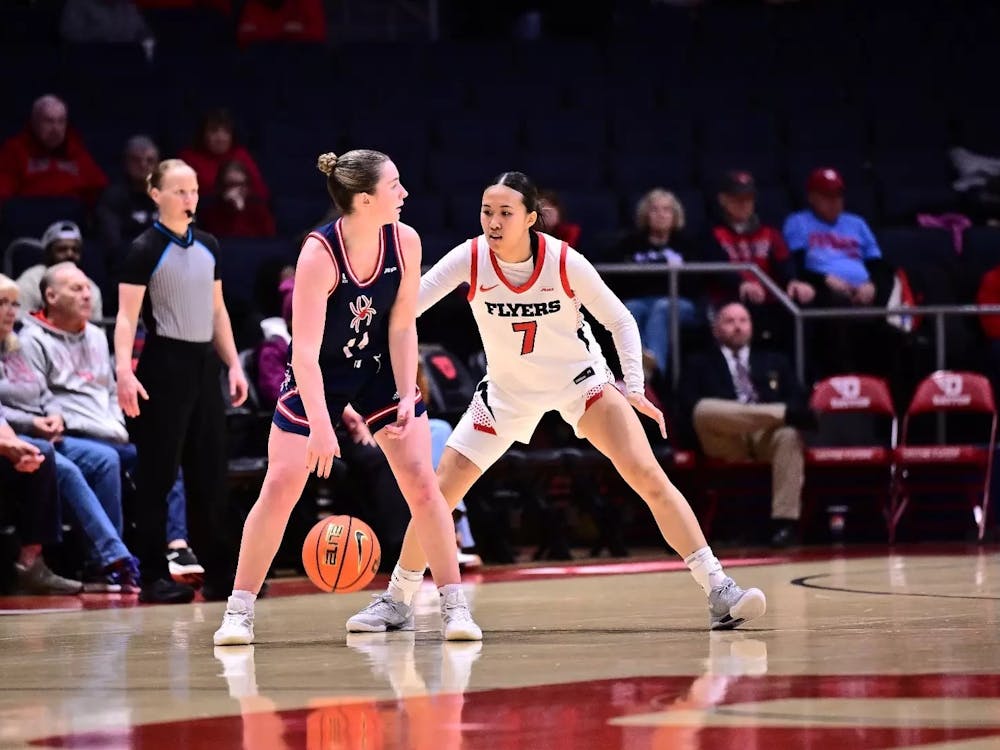The major declaration process at the University of Richmond offers personal freedom and flexibility for students, but it is also designed to keep students on track for their academic careers, university Registrar Susan Breeden said.
One opportunity that the university allows to students is to double and even triple major. For the class of 2012, 126 students out of a total of 689 graduates from all three schools completed more than one major, approximately 18.3 percent, according to statistics from the registrar's office.
Although majoring in more than one field is a possibility offered to students, it should be something that is carefully considered, professor David Leary said.
A declared major is necessary for graduation, but it is still important for students to take advantage of a liberal arts education by taking classes in different fields, he said. In some cases, more than one major can be restricting on both a student's academic schedule and extracurricular schedules because of the number of required classes, he said. Since double and triple majoring is an opportunity presented to students, they think that more is better, which is not always the case, he said.
The only time proposed majors and minors can become official is during the first two weeks of any semester, Breeden said. This time period is set so that students can receive their faculty advisers for their majors and so that department staff can plan for the next semester's registration, she said. The earliest a student can declare is at the beginning of his or her sophomore year, and students are generally expected to have declared by the end of the sophomore year.
"They need to be planning," Breeden said. "To get all of your major requirements in, the theory is that you need to have a goal."
The registrar's office staff sends reminders to students who have not declared by the end of their sophomore years, she said.
Because departments set restrictions on classes, students who have declared a major or minor can benefit and get into classes before students who want to take the class as an elective, she said. Students face few consequences for declaring early because they are allowed to change majors at any time and multiple times, she said.
Although sophomore year is designated as the year to declare a major, there is no best time to declare, said Lisa Gentile, director for the Academic Advising Resource Center and associate dean for the School of Arts and Sciences.
If a student knows what he or she wants to major in at the beginning of sophomore year, it makes sense to declare then, she said, but it is largely a personal decision. Some students want to explore other academic areas and choose to wait.
For some students, such as sophomore Anna Allen, the declaration process can be exciting, yet intimidating.
"You have to make a permanent decision of what you want to do," she said, "or at least you have to decide a direction you want to go in."
Enjoy what you're reading?
Signup for our newsletter
Although she has not yet declared, Allen said she felt it was important that students had the opportunity to change majors if necessary. Taking First-Year Seminar classes and fulfilling her general education requirement in literary studies led her away from a passion for science and helped her discover that her first love was in the humanities, she said.
"You take that one class, and you're like, 'Oh, this is awesome. Maybe I want to do this,'" she said. "And it's nice to be able to change direction if you can."
Students are also allowed to complete additional majors or minors after graduation, as long as the classes are taken at Richmond, according to the university's undergraduate catalog. In this case, the classes required for the additional major or minor must be finished within two years of graduation, unless more time is allowed by departmental approval.
Contact staff writer Rebecca Wilson at rebecca.wilson@richmond.edu
Support independent student media
You can make a tax-deductible donation by clicking the button below, which takes you to our secure PayPal account. The page is set up to receive contributions in whatever amount you designate. We look forward to using the money we raise to further our mission of providing honest and accurate information to students, faculty, staff, alumni and others in the general public.
Donate Now


